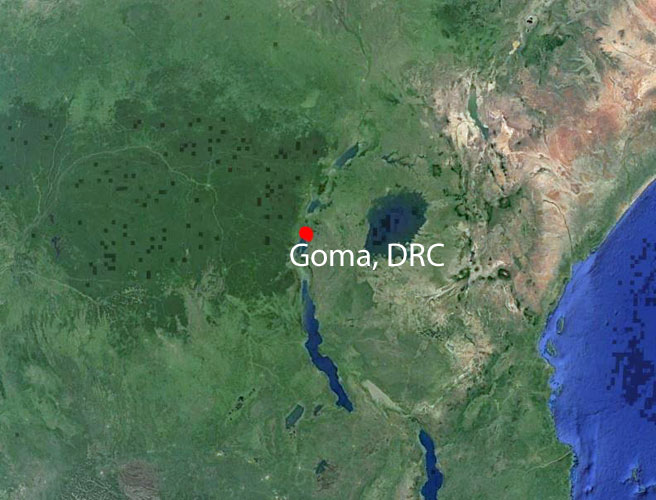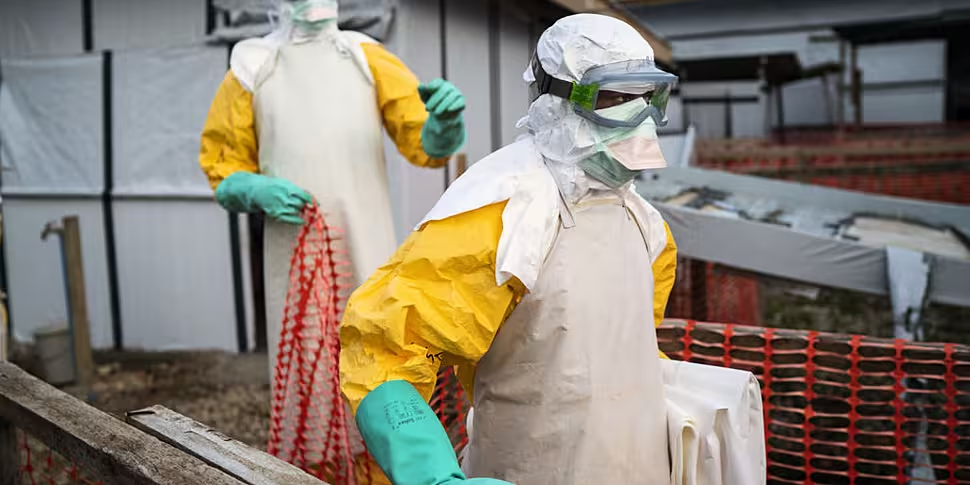The World Health Organisation (WHO) has declared an Ebola outbreak in the Democratic Republic of the Congo as a public health emergency of international concern.
This followed a meeting of the International Health Regulations Emergency Committee in the DRC.
It cited recent developments in making its recommendation.
This included the first confirmed case in Goma, a city of almost two million people on the border with Rwanda.
Experts say it would be extremely difficult to control an outbreak in a place like Goma, and the upgraded crisis status should see more specialists and resources arrive to combat the virus.
 Goma is seen in the Democratic Republic of Congo, near the border with Rwanda | Image: Google Earth
Goma is seen in the Democratic Republic of Congo, near the border with Rwanda | Image: Google EarthThis was the fourth emergency committee meeting since the outbreak was declared on August 1st last year.
The committee expressed disappointment about delays in funding, which the WHO says have "constrained the response."
They also reinforced the need to protect livelihoods of the people most affected by the outbreak, by keeping transport routes and borders open.
"It is essential to avoid the punitive economic consequences of travel and trade restrictions on affected communities", it adds.
WHO Director-General Dr Tedros Adhanom Ghebreyesus says: "It is time for the world to take notice and redouble our efforts.
"We need to work together in solidarity with the DRC to end this outbreak and build a better health system.
"Extraordinary work has been done for almost a year under the most difficult circumstances.
"We all owe it to these responders - coming from not just WHO but also government, partners and communities - to shoulder more of the burden."
"This is about mothers, fathers and children - too often entire families are stricken.
"At the heart of this are communities and individual tragedies", Dr Ghebreyesus adds.
The latest WHO figures, as of July 15th, showed a total of 2,512 cases in the region.
This breaks down as 2,418 confirmed cases and 94 probable cases.
While there have been 1,582 confirmed deaths.
The Department of Foreign Affairs is advising Irish citizens to avoid non-essential travel.









